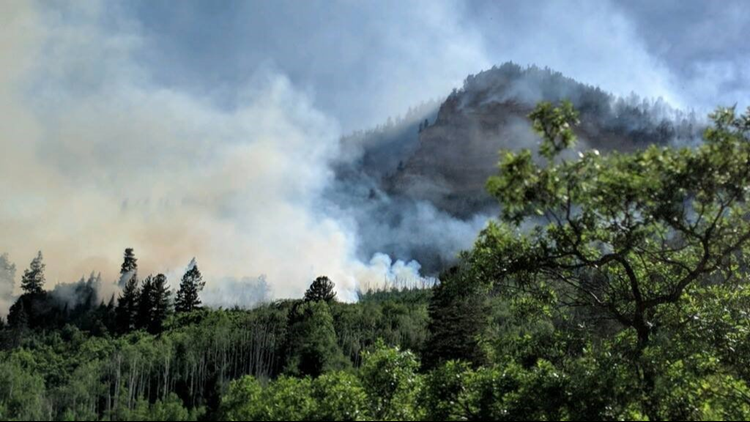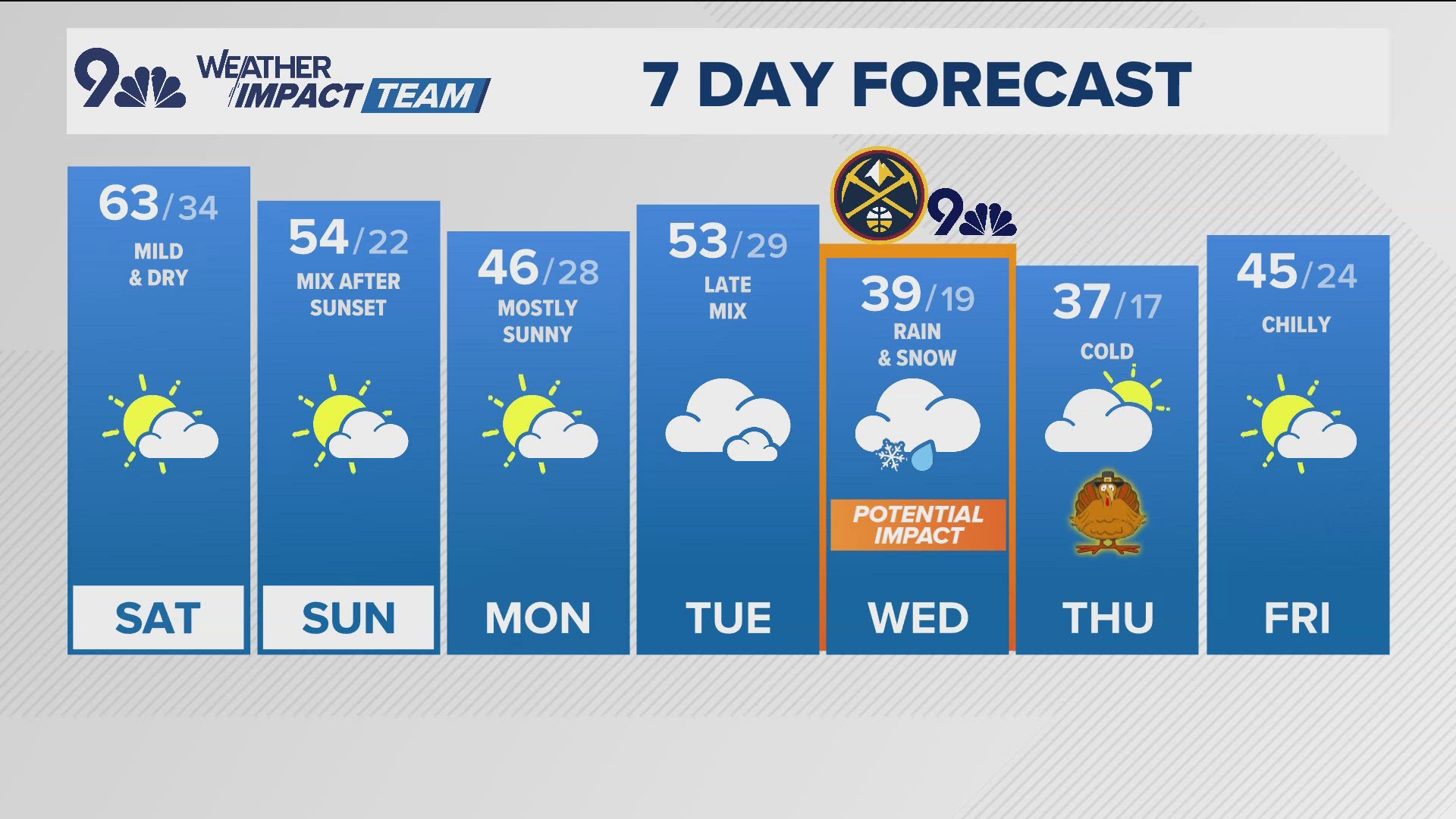KUSA – While fire crews dig line and helicopters drop water on the flames below, meteorologist Jeff Colton launches weather balloons from the ground.
“I’ve got rain gauges and the ability to measure temperatures, relative humidity, wind speed and direction as well,” Colton said. “Basically, I’m a one-person weather shop.”
Colton is a National Weather Service incident meteorologist assigned to the Rocky Mountain Incident Management Team that’s been battling the 416 Fire since the June 1.
“I’m the one source for them to obtain weather information right away,” Colton said. “I’m here. I’m dedicated strictly to this incident.”
The 416 Fire has burned more than 34,000 acres north of Durango and was 25 percent contained as of Saturday evening. Colton’s primary focus is the safety of the more than 1,000 firefighters and support staff working to contain the fire. He writes a forecast every day that’s shared with fire crews each morning and evening. Lately, he’s been keeping a close eye on approaching storms left over from Tropical Storm Bud. If weather turns severe, Colton can reach crews on the fire lines by radio.
“Once the storms get within ten miles, I’ll do a second radio update and give [firefighters] a heads up it’s moving closer and at that time, they will seek a safe zone, move into their vehicles or get off the line,” Colton explained.
Rain after a fire isn’t always a good thing.
“If we get heavy rain on a fresh burn scar, it can take as little as a quarter inch of rain to cause mud and debris flows to flow down the mountain,” Colton said.
Thankfully, fire crews haven’t had to deal with those issues with the 416 Fire.
“Luckily the rain has been gentle, steady – not heavy at all,” Colton said Saturday. “It’s been really a Godsend to have that rain today.”
Like the firefighters working in southwest Colorado, Colton is dispatched for up to two weeks at a time, often at a moment’s notice.
“Our goal is to be ready to go within just a few hours of our phone call and to get on the road and get moving to where we need to be,” Colton said.
National Weather Service meteorologists like Colton respond not only to wildfires. Their expertise is often needed for different types of natural disasters.
“We respond to whatever is needed,” Colton said.
Colton typically responds to three to four fire incidents each season and expects the first call to come in late May or early June. He can be dispatched anywhere in the country and sometimes works incidents into October.



